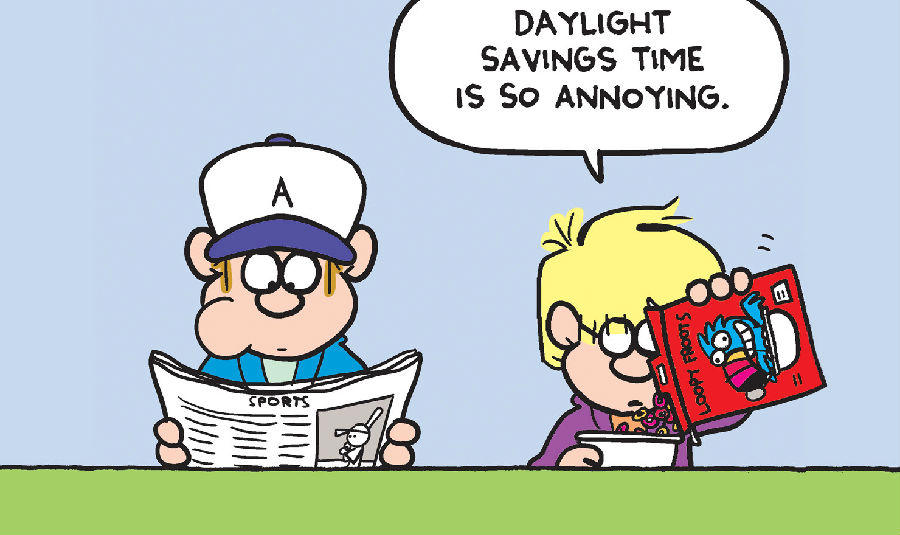And here is a note on time zones.
下面是一則關于時區的消息
Time’s up for daylight saving?
夏令時要涼涼了?
The European Parliament called for an investigation into daylight saving time on health grounds on Feb.8,
2月8日,歐洲議會以健康為由呼吁對夏令時進行調查。
following other legislatures scrutinizing the practice of changing clocks every year.
而在此之前,其他立法機構也對每年更換鐘表的做法進行了審查。
Here’s more.
下面是本報詳細內容。
First of all, THE EUROPEAN CASE
首先是歐洲方面
Critics of moving clocks an hour forward every summer say it disrupts human biorhythms.
反對每年夏天將鐘表調快一小時的人士表示這一做法擾亂了人體的生物鐘。
Supporters say the practice has benefits, like preventing traffic accidents,
支持者則認為這種做法也有諸多好處,比如可以預防交通事故。
and a 2014 study found that the overwhelming majority of E.U.member states were happy with it.
2014年的一項研究發現,絕大多數歐盟成員國都是支持夏令時的。

And THE AMERICAN CASE
其次是美國方面
In the U.S., states that wish to end daylight saving time must petition Congress, as Arizona did in 1968.
在美國,希望結束夏令時的州都必須向國會提出請愿,就像亞利桑那州1968年所做的那樣。
But some states want DST to last all year;
但有些州希望一年四季都使用夏令時;
California and Florida are either considering or pushing bills that would move the clocks an hour forward permanently.
加利福尼亞州和佛羅里達州要么正在考慮要么已經在推動將時鐘向前推進一小時的法案了。
And there is the THE RUSSIAN CASE
此外還有俄羅斯方面
Russia switched to permanent winter time in 2014 after a failed experiment to put clocks on year-round summer time in 2011.
在2011年全年使用夏令時的試驗失敗后,俄羅斯于2014年改為永久使用冬令時。
The policy apparently caused health issues in northern Russia, where mornings would remain darker for longer during the winter months.
顯然,這項政策在俄羅斯北部引發了諸多健康問題,因為那里冬季的早晨黑的時間更長。











